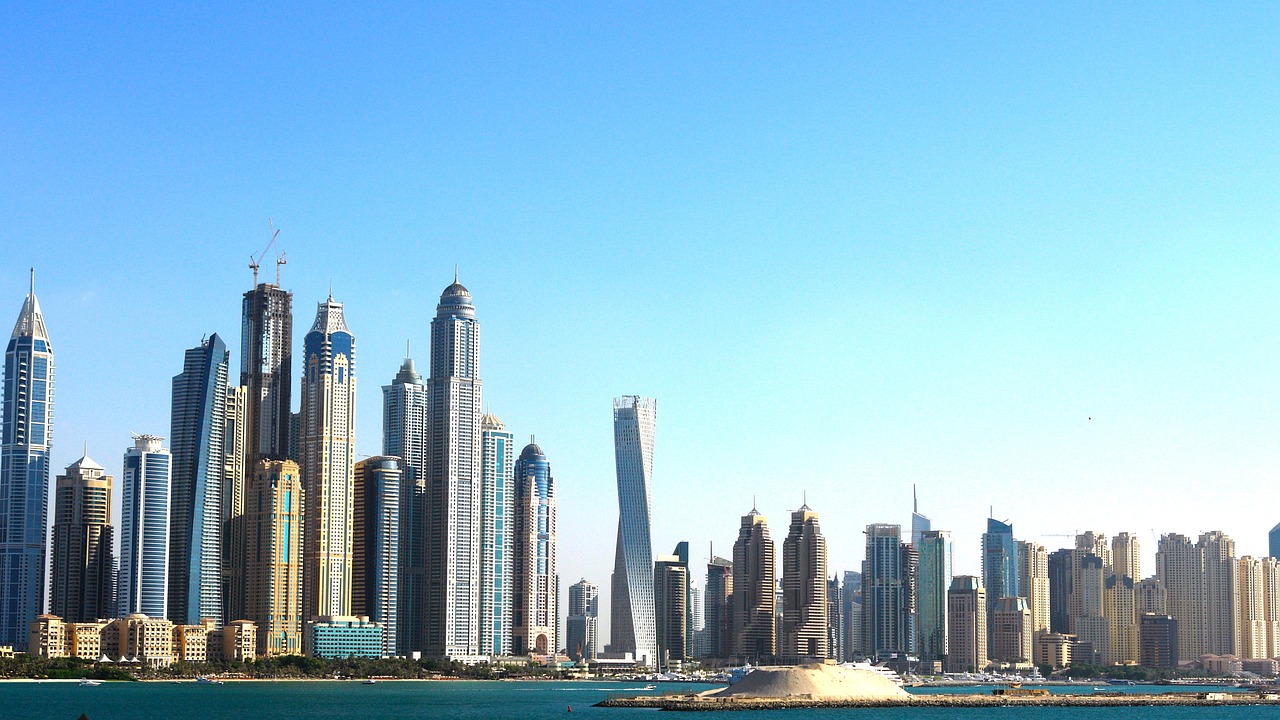A report by Bloomberg stated that the fallout from the broad tariff war waged by U.S. President Donald Trump is threatening Dubai real estate market. Amid growing uncertainty affecting assets from India to China and the United Kingdom, there are concerns that this could drive away wealthy foreign buyers who have supported the emirate’s property market.
Main Takeaways
- U.S. tariffs may scare off foreign investors in Dubai
- Falling oil prices threaten real estate stability.
- Job cuts could reduce expat-driven housing demand.
- Saudi budget cuts may slow Dubai’s growth too.
These new threats come after property prices in Dubai had already begun to slow in recent months. Prices rose by 16% last year compared to 20% the previous year, as buyers hesitated in the face of price increases that reached around 70% over the past four years, according to data from global real estate consultancy Knight Frank—outpacing major cities around the world in growth.
But this strong boom now faces its biggest threat since the COVID-19 pandemic, amid turmoil in oil markets as well. Economic forecasts for the oil-producing Gulf countries are declining, with Brent crude falling below $65 a barrel due to trade tensions and the decision by the “OPEC+” alliance earlier this April to increase supply.
Analysts say the risks of a broader slowdown in the real estate market are mounting. Mohamed Ali Yassin, founder and CEO of Oracle Financial Consultancy and Investment, believes that the drop in oil prices could lead to a reduction in available jobs for expatriates in the UAE—who have played a key role in revitalizing the real estate sector.
Taimur Khan, Head of Research for the Middle East and Africa at real estate services firm JLL, also pointed out that the high levels of international investment in Dubai real estate market make it vulnerable to a global asset downturn. He said, “There are doubts as to whether international groups facing pressure in their local markets will continue to invest here.”
Dubai real estate market has been tied to oil prices for years, with property values declining in 2014 and 2020 in tandem with oil price crashes. Home prices in Dubai fell by around 33% between 2014 and 2020 following the collapse in oil prices and a drop in government revenues.
Although Trump largely suspended the broad tariffs he announced earlier this month, he imposed a 145% tariff on imports from China, which is the largest importer of oil from the Middle East. Yassin warned, “People underestimate the impact of slowing growth in China and the resulting decline in oil demand in our markets,” adding that “government spending and projects will be the most affected if oil prices remain near $60, which will negatively impact jobs and economic activity in the long term.”
For its part, global investment bank Goldman Sachs warned that Saudi Arabia could face a budget deficit of up to $67 billion this year, which may lead to cuts in spending on its ambitious economic transformation plans. These developments impact Dubai as well, where many companies are headquartered and use the city as a gateway to the Saudi market. This means that any reductions in construction projects in the Kingdom could also affect job opportunities in Dubai.





